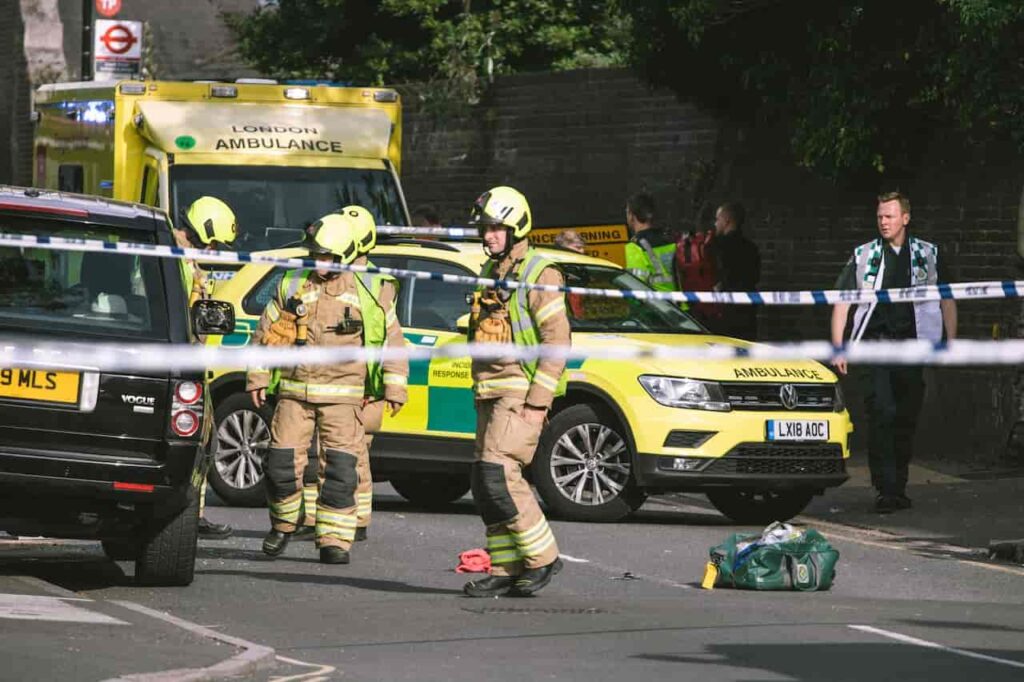Car accidents may be frightening events that frequently leave the individuals involved in a confused and distressed condition. Finding the responsible party is crucial in dealing with an automobile accident’s aftermath. This decision is crucial in resolving insurance claims and greatly influences personal injury claims. This in-depth tutorial will examine the factors determining who is responsible for vehicle accidents. This includes the importance of witnesses, evidence and police reports and how this determination affects personal injury claims.

Contents
The Role of Evidence in Determining Fault
Evidence acquired at the site is generally used to establish liability in auto accidents. In such cases, the decision to hire a car accident lawyer can be a lifesaver. This is because a qualified car accident lawyer assists greatly in evaluating the facts, witness accounts and legal considerations.
That said, the main categories of relevant evidence are listed below.
- Physical Proof
The vehicles’ damage, the road’s skid marks, and any debris left at the site are all examples of physical evidence. Photographs showing the damage to the car, which indicate the point of contact and the degree of the damage, can be crucial pieces of evidence. The events leading up to the collision may be reconstructed using skid tracks and debris patterns.
- Photographs
It is vital to document the accident site using photos. The placement of the cars, the state of the roads, the presence of traffic lights, and any other pertinent information are all visually documented in these photographs. Smartphones and other modern technologies have made it simpler for accident victims to capture the situation on camera quickly.
- Traffic Laws
Traffic laws and regulations exist to provide guidance and establish responsibilities for drivers. A thorough examination of whether traffic laws were violated can help determine fault.
The Significance of Police Reports
The police report is one of the most important pieces of evidence in assessing liability. The police reports are important in the following ways.
- In official records
When law enforcement responds to an accident site, they produce an official document called a police report. It gives a fair account of the incident, including the occasion, place, and surrounding weather, as well as quotes from those involved and bystanders.
Police officers frequently speak with witnesses to get their accounts regarding the incident. Witness testimony has a big influence on determining culpability since it can support or refute the claims of the participating drivers.
- Expert Opinions
In some circumstances, the police report may incorporate the professional judgments of experts in accident reconstruction. These professionals reconstruct the event using scientific techniques to identify variables, including speed, braking, and impact angles. Their conclusions can offer insightful information about the fault.
Establishing Liability Through Witness Testimony
Spectators play a vital role in determining fault in a car accident. Their unbiased views and testimony can offer crucial information on how the event happened. Following are some ways that witness evidence may affect finding fault:
Witness Statements: Witness testimony may corroborate or challenge the participating drivers’ testimonies. Witnesses give unbiased descriptions of what they observed, which can help determine the sequence of events leading up to the disaster. For instance, it might be easier to blame a particular motorist if a witness attests that they ran a red light.
Believability: An important consideration is the witnesses’ believability. Courts and insurance companies may consider a witness’s perspective, relationship to the parties, and recollection accuracy when determining their credibility.
The Impact on Personal Injury Claims
Fault determination in car accidents has a profound impact on personal injury claims. The below list outlines how these claims can be affected,
- Liability for Damages
In most cases, the motorist who was determined to be to blame for the collision is accountable for the other party’s losses and damages. If there is joint blame, each participant is responsible in proportion to their share of the fault.
- Damage Reimbursement
In personal injury lawsuits, damages are sought for lost income, pain and suffering, medical costs, and other harms brought on by the accident. The amount of compensation that can be obtained directly depends on who was at fault.
- Insurance Settlements
Determining culpability is frequently the starting point for resolving personal injury claims by insurance companies. The insurance provider may bargain a settlement with the injured party if their covered motorist is determined to be at fault.
Read More: 8 Cheap and Inexpensive Car Modifications
Conclusion
Determining culpability is critical in requesting compensation for injuries and losses in an automobile accident. The presence of evidence, witness testimony and police records is crucial. Understanding how blame impacts personal injury claims is also essential for people involved in vehicle accidents.
Seeking the advice of a knowledgeable attorney may assist in safeguarding your rights and making sure you get the compensation you are entitled to if you find yourself in a complicated accident.